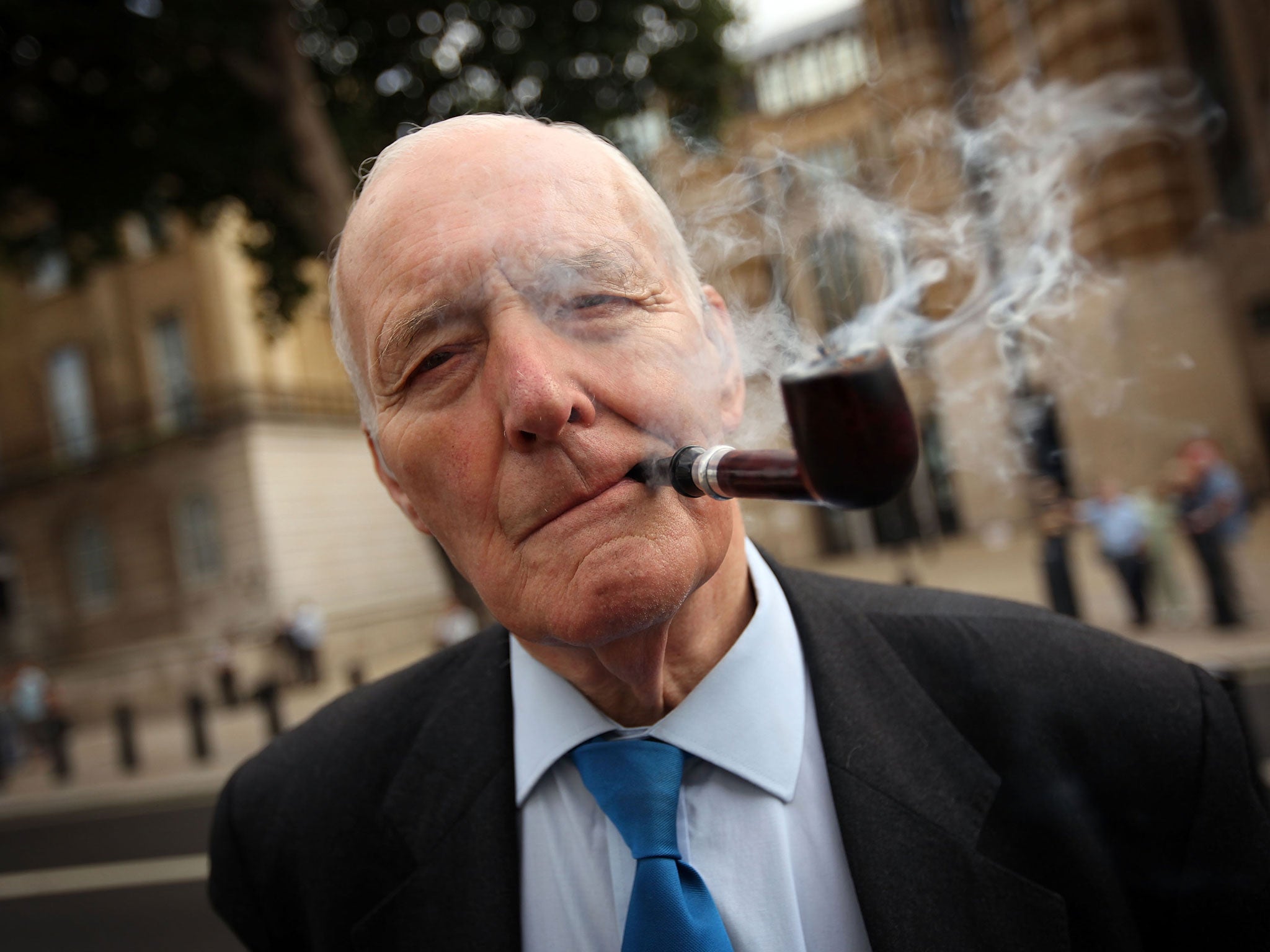If all our politicians play it safe, who’ll be a Tony Benn 30 years from now?
Nick Clegg has started to look miserable at times during Prime Minister’s Questions and wears a tribal yellow tie, but that's about it in terms of political dissent


The near-silence of senior politicians in August seems different from the rest of the year. Most ministers and their opponents are away and not saying much in public. But does this holiday month mark such a significant leap from the rest of the year? Have we moved seamlessly from noisy, assertive debate to fleeting tranquillity?
The answer to these questions is depressing. Of course, for the rest of the year ministers make statements and give interviews. Shadow ministers oppose. Leaders clash. But little of this hyperactivity is marked by loud, passionate debate. The distinctive characteristic of the Coalition of two parties is its calm. There have been no dramatic cabinet resignations on a matter of principle. Vince Cable is the nearest to an internal dissenter but he makes his moves discreetly, sometimes so subtly it is not easy to discern quite what form his social democratic vision would take. On the other side, the former cabinet minister Liam Fox makes speeches further to the right than the already right-wing policies implemented by the Coalition. But he makes the most of a freedom from collective responsibility that was imposed on him. His departure from the Cabinet had nothing to do with policy.
Elsewhere all is quiet from June to July as much as August. Nick Clegg has started to look miserable at times during Prime Minister’s Questions and wears a tribal yellow tie, compared with the early days when he could not hide his unbridled excitement at his new partnership with David Cameron. That is about it in terms of dissent.
On the Labour side, a similar mood has descended. Before the election, columnists were eagerly predicting meltdown if Labour lost. There has been no collapse. In public, so-called Blairites are as loyal as others. Privately, there is some debate on the role of the state, how best to reform public services and the direction of economic policy. A few senior Labour figures brief journalists that they are not happy, but listen carefully to what they say and their alternative route is vague, if it exists at all.
On one level, the public discipline, the eternal silence, is based on wholly rational calculations. Divided parties lose elections. In addition, one of Clegg’s objectives was to prove that coalitions work, in the sense that two parties can govern without falling out. On Labour’s side there is quite a hunger to return to power quickly. The 18 years of opposition from 1979 until 1997 still leave a mark. The youngish intake from 2010, at least those that are now on the front bench, yearn to be ministers. They are not there to shake things up.
Yet there is another side to politics, one that is much missed and partly explains the indifference of most voters. Politics should sparkle with passionate debate conducted by advocates who can mesmerise. It should do so especially in the era we are living through, one of tumultuous change reflected in the economic crisis and the prospect of two historic referendums, on independence for Scotland and on Europe.
Given that all three parties are now the broadest of broad churches, those debates should take place internally as well. Yet most senior figures opt for technocratic tedium. They play safe and stick to the party line. If their party is in power, they might manage a Whitehall department briefly, a career peak. Soon it is over, and they become largely anonymous figures in the Lords or earn a fortune in the private sector, sometimes both. If in opposition, the aim is to become one of the managerial ministers.
Voters might not care for party disunity, but they ache also for public figures who stand out from the crowd, speak their minds, have strong convictions. These are characters who may not wield much orthodox power. They make their moves without the active support of their leaders. But they remain endlessly fascinating and continue to attract attention. At this year’s Edinburgh Festival, the politicians who will pull in the crowds include Tony Benn, who is often blamed for Labour’s fatal divisions in the 1980s; Tom Watson, who resigned this summer from Labour’s front bench; and Chris Mullin, whose diaries mock the powerlessness of ministerial life. They are all very different, but no one can accuse them of entering politics for the near silence of managerial careerism.
Of that particular trio, Benn was much the most prominent and ambitious. He was the best orator I have witnessed, and some of his obsessions in the 1970s and 1980s are proving to be more fashionable now: the accountability of elected politicians; the lack of accountability in Europe and in big institutions such as the banks; the anachronistic absurdity of a non-elected second chamber. Benn is in his late eighties now, and frail, but he still packs them in. I cannot imagine, say, Philip Hammond filling halls in 30 years’ time or, indeed, now.
If voters are to pay attention, we need many more like this powerless trio packing them in at festivals. They bring politics to life. Those who are ambitious now should take note that while voters may disapprove of divided parties, they turn away completely from lifeless politics.

Join our commenting forum
Join thought-provoking conversations, follow other Independent readers and see their replies